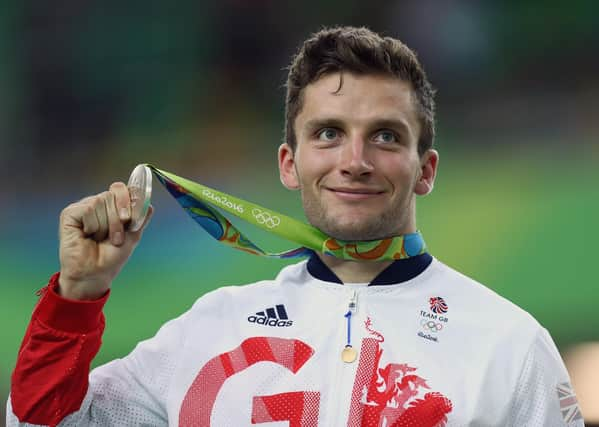Callum Skinner accuses IOC of ‘arrogance’ as athletes wait in limbo


If the International Olympic Committee entered a kicking-the-can-down-the-road event, they would be, well, gold medal winners. Retired Scottish Olympic cyclist Callum Skinner has heard it all before.
An announcement that the IOC is considering postponing Tokyo 2020 but will take a month to confirm this action fits a narrative that has cast the governing body as indecisive at best. Skinner goes further and accuses the IOC of “stubbornness” and “arrogance”.
Advertisement
Hide AdAdvertisement
Hide AdGlobal Athlete, the athlete-led movement that Skinner helps front, yesterday issued a statement backing mounting pressure for the games to be postponed in the wake of the Covid-19 pandemic. The athletes’ movement also called for immediate clarification for the sake of athletes’ mental and physical well-being. The IOC responded by saying it will make a decision – but not yet. “Different scenarios” are still being considered, a stance which seemed to satisfy very few.
Athletes remain in a no-man’s land of not knowing whether to continue training or not. In some cases, it’s not even an option. Facilities such as gyms have been closed down as have velodromes.
Then there are their own health concerns – both now and if the games do go ahead this summer, in whatever form.
Skinner is an athlete who reached the top of his chosen discipline despite having an underlying health condition, in his case asthma. Indeed, at London 2012 as many as 700 out of 10,000 athletes were diagnosed as asthmatic, which puts them firmly in the category of those most at risk when it comes to Covid-19. “Also, you find that the most common illnesses athletes pick up at the Olympics are respiratory illnesses,” said Skinner.
“The issue has trickled all the way down to the Paralympics,” he added. “A few of my friends who are Paralympians have underlying immunity issues as well. It is quite easy to put athletes on a pedestal and call them superhuman but they are just as capable of contracting a virus as anyone else.”
Among the most compelling reasons for postponing the games for at least 12 months is the fact so many athletes will potentially find themselves compromised if they go ahead later this summer, if they decide to compete at all.
“Ultimately, the International Olympic committee has to ask themselves one question,” said Skinner. “Do you want to have a scaled-down Games this summer where there is potentially going to be boycotts by various athletes and organisations and the coverage is all going to be about Covid-19? Or do you want to postpone, wait and use the Olympics as it has been used so many times in the past as an opportunity to bring the world together?”
Skinner concedes it is a difficult and emotional issue for many involved. Some athletes have pleaded for patience and would prefer the games are given every chance to go ahead as scheduled. This time four years ago Skinner was preparing for Rio with “all guns blazing”. He was a member of a team that won gold in the men’s team sprint and also earned a silver medal in the men’s individual sprint.
Advertisement
Hide AdAdvertisement
Hide Ad“It is a level of focus and dedication that’s once in a lifetime for a lot of athletes,” said the 27 year-old. “I can completely understand how disruptive postponing the games can be – you are talking about changing a date set in an athlete’s calendar for ten years plus. But ultimately health and safety and the continuation of the Olympic movement has to come first. To continue regardless would do immense damage to both.”
Even Skinner’s own thinking has changed in the last 48 hours as the figures of those infected by Covid-19 continue to soar in Europe and elsewhere.
“It has become clear this is not going to be an issue that’s going away by the summer,” he said. “There is a responsibility for the IOC to give leadership and direction or at the very minimum acknowledge the severity of the situation and accept that the Games have to be compromised or just give total clarity and say they will be postponed.
“There is a host of other issues,” he added. “Approximately 50 per cent of the sports have not finished their qualification criteria for the Olympic games yet.
“In an ideal world what I’d like to see is the qualification events re-started first post- pandemic, and that should give appropriate notice for the Olympics to commence after that. We are in far from an ideal situation, I guess it’s about finding the least-worst option.”